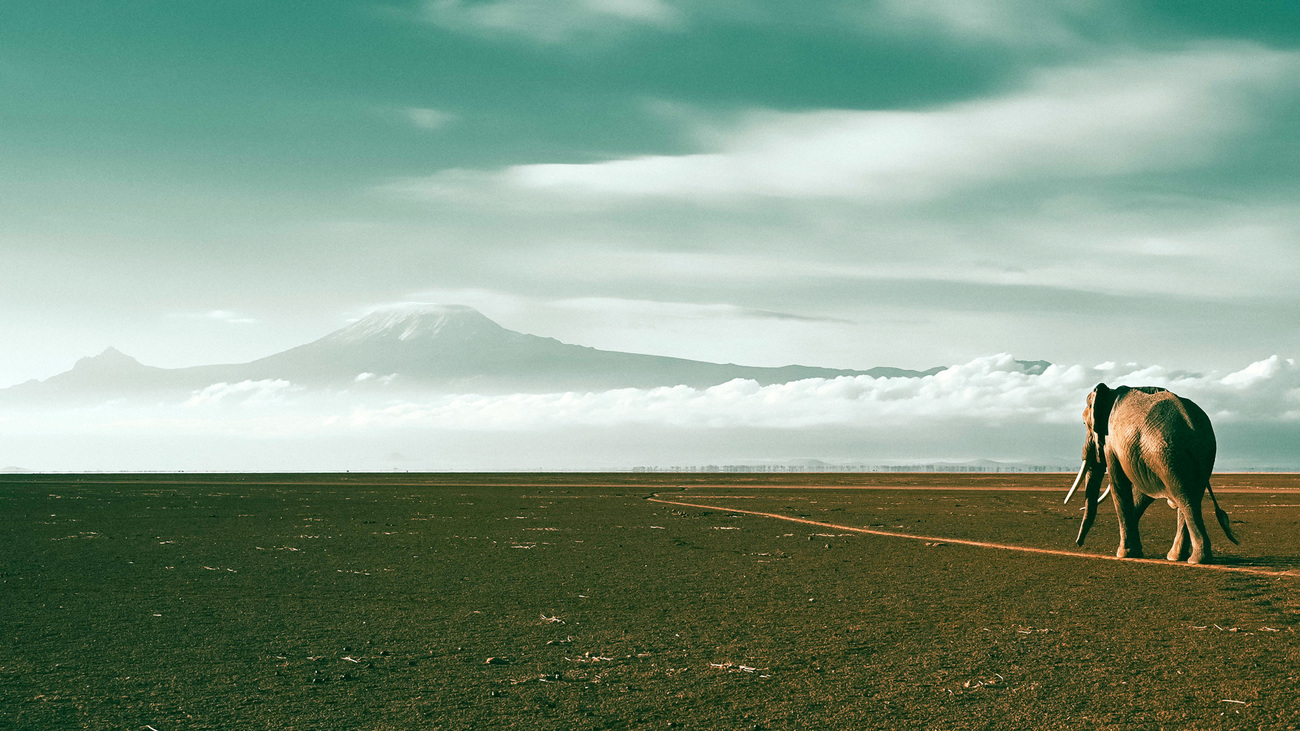Bringing the elephant INTO the room at COP28
Bringing the elephant INTO the room at COP28

A new idea is taking hold at COP28: that wild animals can help stabilise the global climate.
A coalition of 18 civil society organisations, researchers in top Universities and policy actors issue an open letter today calling for the protection and restoration of wild ecosystems to be at the heart of global climate policy and action. A range of events are taking place at COP28 – the 28th meeting of the UN Framework Convention on Climate Change (UNFCCC) – to set out how to implement this idea.
Karl Wagner, MD of the Global Rewilding Alliance, said: “For too long, policymakers have ignored wild, functional nature with an abundance of wildlife species as a climate solution. In fact, wild animals and their interaction with their environment can be considered as a missing link between biodiversity and climate. Bringing back functional ecosystems is one of the quickest, cheapest and most effective means of stabilising the global climate.”
Extensive research is showing that rewilding viable populations of wild animals can enable terrestrial and marine ecosystems to absorb vast amounts of carbon. This emerging scientific area is known as Animating the Carbon Cycle. During 2023, this science has become ever stronger, with the publication of several new studies in some of the world’s top scientific journals (see Notes for Editors).
Professor Oswald Schmitz of Yale University and speaker at the COP28 events said: “Rewilding (protecting and enhancing) populations of key wildlife species across the world could absorb carbon and reduce emissions by billions of tonnes annually - an amount that rivals or surpasses the top five mitigation measures identified by the IPCC.”
Andrew Tilker of Re:Wild, co-author of one of the studies and speaker at one of the events, said: “Our study shows that the protection and restoration of the populations of just nine species/groups - marine fish, whales, sharks, grey wolf, wildebeest, sea otter, musk ox, African forest elephants, and American bison - could collectively facilitate the capture of more than 95% of the amount needed every year to meet the global target of removing 500 GtCO2 from the atmosphere by 2100”.
Despite these key findings, rewilding and the role of wild animal populations and restored ecosystems do not appear as an option in either the IPCC nor the UNFCCC discussions.
Chris Butler-Stroud, CEO of Whale and Dolphin Conservation and co-host of one of the events, said: “Whales have remained our steadfast allies in the fight against climate breakdown. The science now tells us we need to re-whale the ocean and enable them to do what they do amazingly well - keep the ocean healthy. If we adopt this science into climate policy, we know that populations of whales and dolphins can recover. A stabilising climate is achievable if we simply make the right choices.”
Simon Addison of IFAW said: “Only by joining hands with nature can we stabilise the climate for humanity to avoid catastrophic climate change. Wild animals are our most important allies in doing this, so we must help them bounce back by giving them room to roam. Right now, animals are nowhere on the climate agenda, but we are here to change that.”
Mark Halle, Chair of the Global Rewilding Alliance and speaker at one of the events, said: “The time has come to embrace a holistic, integrated systems perspective that explicitly recognises the role of biodiversity — especially animal diversity — as the practical, quick and cost-effective linkage between ecosystem carbon and climate change”.
Notes for Editors:
Key studies:
- Scientific Paper In Nature Climate Change (March 2023)
- Briefing: Rewilding, A Serious Candidate For Stabilising The Global Climate (2023)
- Full report: Animating the Carbon Cycle (2022)
Side event information:
Empowering Ecosystems: Integrating Biodiversity and Climate Solutions
Date: 9th December
Time: 15:00 - 16:30
Venue: Connect Conference Centre Auditorium, Green Zone, Expo City, Dubai, UAE
Organisers: Mohamed bin Zayed Foundation (MBZF)
Harnessing the power of wildlife to tackle the climate crisis
Date: 10th December
Time: 17:00 - 19:00
Venue: Nature Pavilion, Blue Zone, Expo City, Dubai, UAE
Organisers: International Fund for Animal Welfare (IFAW), Whale and Dolphin Conservation (WDC), Global Rewilding Alliance (GRA)
Bringing elephants into the room – why UNFCCC needs to put animals on the table
Date: 11th December
Time: 11:30 - 13:00
Venue: Side Event Room 3, Blue Zone,Expo City, Dubai, UAE
Organisers: GRA, Re:wild, MBZF, Yale School of the Environment (YSE), WDC, IUCN Species Survival Commission
Operationalising Article 5 of the Paris Agreement to ramp up ambition for nature-based solutions
Date: 11th December
Time: 09:00 - 10:00
Venue: Nature Pavilion, Blue Zone, Expo City, Dubai, UAE
Organisers: IFAW, Royal Society for the Protection of Birds (RSPB), Birdlife International
Full information: Relevant Side Events at COP28
NB: side events are streamed live online. See: https://www.youtube.com/@UNClimateChangeEvents
Media Contacts:
Alister Scott, Director of Communications at the Global Rewilding Alliance
alister@globalrewilding.earth; +44 7904 500097 (UK)
Stacey Hedman, Director of Global Communications at IFAW
Shedman@ifaw.org; +1 508 737 2558 (phone or Whatsapp)
Danny Groves, Head of communications at Whale and Dolphin Conservation
Telephone: +44 (0)1249 449 534 (UK)
Related content
Our work can’t get done without you. Please give what you can to help animals thrive.